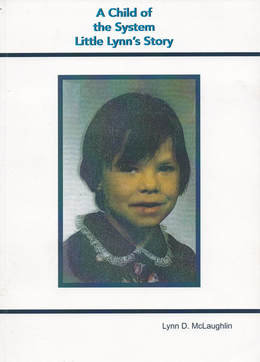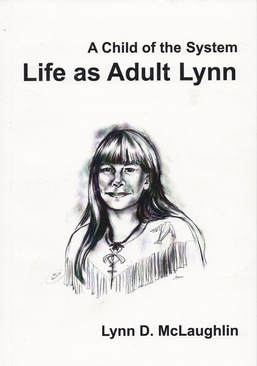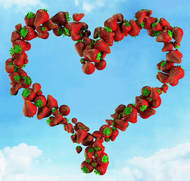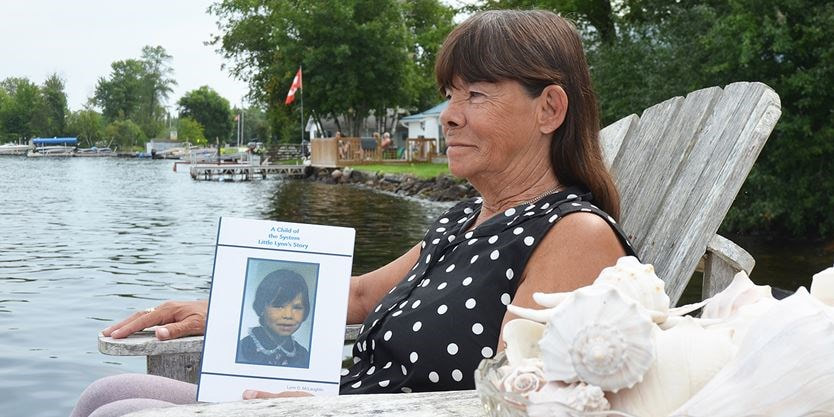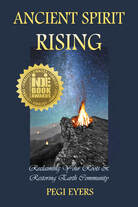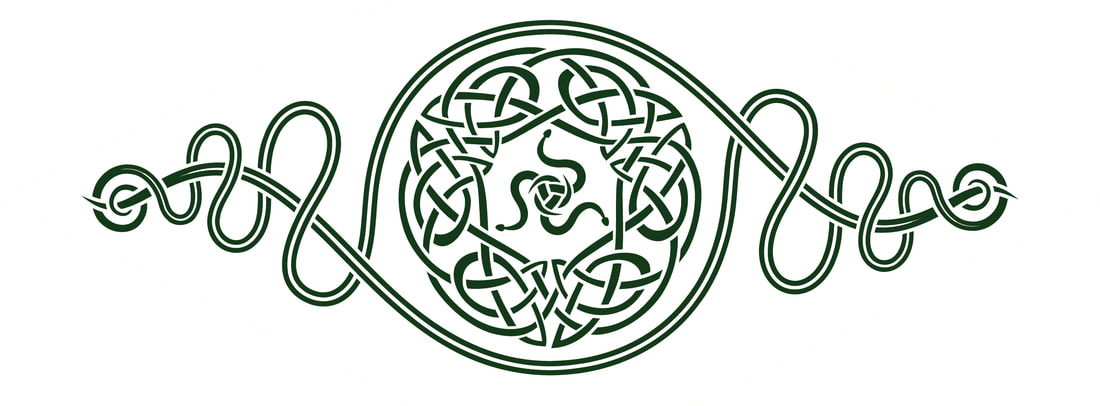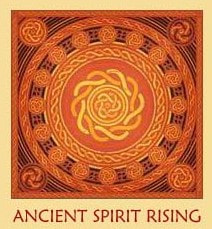A Child of the System: Little Lynn's Story
A Child of the System: Life as Adult Lynn
A Child of the System: Life as Adult Lynn
REVIEW BY PEGI EYERS
For many of us, putting our life story out in the public domain for all the world to see, is a good way to empower our healing journey. Against all odds, this is exactly what Lynn D. McLaughlin has done, with her dedication to charting the stages of her life and drawing the reader in, as a witness to her story. "A Child of the System" Part One, Little Lynn's Story and Part Two, Life as Adult Lynn describe in great detail her chronology of events, and Lynn is braver than most as she delves into the displacement, sexual assault, abuse, addiction and other trauma she has experienced.
Lynn's keen memories begin when she was a toddler, and even as the abandonments and assaults begin to stack up, her sense of injustice never wavers. What emerges from these tragic narratives is the sense of a spunky little girl who demands to be seen and heard, and who tries to keep her balance in the midst of trauma and betrayal. Among parents and other family members struggling with poverty, alcoholism and issues of their own, Little Lynn suffers neglect, illness, violence, rape from her step-father and uncles; and witnesses the death of an infant sibling from meningitis. She experiences racism and a lack of freedom, and when her parents are unable to care for the family, at age 6 Little Lynn becomes a Children's Aid Society "case" - entering the precarity of foster care until reaching adulthood at age 18. With the "mismanagement of the authorities" in charge of her life, she is shunted between various foster homes and the homes of relatives, alternating between school, home life, the occasional time of "normalcy" and outright horror.
Lynn traverses the disappointments and loneliness of her various adoptions, and is subject to archaic punishments, cruelty, confinement and medical errors. She does not feel safe either with family or in various foster homes, and is terrified to speak out about the predators and pedophiles that surround her. In recent times we have seen growing awareness on toxic masculinity, rape culture and domestic assault, and positive developments in transformative justice and community accountability with the #MeToo, #BelieveSurvivors, #WeBelieveYou, #BreaktheSilence, #NoConsent movements, and other strategies to end sexual violence. But when Lynn was a child growing into a young adult, complicity and "keeping silent" about sexual abuse was the norm, with taboos in place against reporting to family members, the police, other authorities, or (heaven forbid) seeking support. Falsely labelled a "problem child" for understandable patterns of rebellion, numbing out, running away, alcohol abuse or encounters with the police, Lynn develops the PTSD that affects her life for many years. What is PTSD? It is being pushed beyond one’s physical, emotional, mental and spiritual limits not once, not twice, but repeatedly: over and over and over.
Lynn's keen memories begin when she was a toddler, and even as the abandonments and assaults begin to stack up, her sense of injustice never wavers. What emerges from these tragic narratives is the sense of a spunky little girl who demands to be seen and heard, and who tries to keep her balance in the midst of trauma and betrayal. Among parents and other family members struggling with poverty, alcoholism and issues of their own, Little Lynn suffers neglect, illness, violence, rape from her step-father and uncles; and witnesses the death of an infant sibling from meningitis. She experiences racism and a lack of freedom, and when her parents are unable to care for the family, at age 6 Little Lynn becomes a Children's Aid Society "case" - entering the precarity of foster care until reaching adulthood at age 18. With the "mismanagement of the authorities" in charge of her life, she is shunted between various foster homes and the homes of relatives, alternating between school, home life, the occasional time of "normalcy" and outright horror.
Lynn traverses the disappointments and loneliness of her various adoptions, and is subject to archaic punishments, cruelty, confinement and medical errors. She does not feel safe either with family or in various foster homes, and is terrified to speak out about the predators and pedophiles that surround her. In recent times we have seen growing awareness on toxic masculinity, rape culture and domestic assault, and positive developments in transformative justice and community accountability with the #MeToo, #BelieveSurvivors, #WeBelieveYou, #BreaktheSilence, #NoConsent movements, and other strategies to end sexual violence. But when Lynn was a child growing into a young adult, complicity and "keeping silent" about sexual abuse was the norm, with taboos in place against reporting to family members, the police, other authorities, or (heaven forbid) seeking support. Falsely labelled a "problem child" for understandable patterns of rebellion, numbing out, running away, alcohol abuse or encounters with the police, Lynn develops the PTSD that affects her life for many years. What is PTSD? It is being pushed beyond one’s physical, emotional, mental and spiritual limits not once, not twice, but repeatedly: over and over and over.
Despite injustice, risky encounters, extreme poverty, incarceration in a "girl's school," early pregnancies, alcohol and drug use, Lynn freely examines her own mistakes and role in the abuse she has suffered - all aspects of the person she is today. Overall, Lynn SPEAKS TRUTH TO POWER, and ultimately, what Little Lynn's Story outlines is the absolute failure of the Children's Aid Society in Canada to respect the children in their care, to offer them safe space, or to provide them with protection from predators and other forms of domestic violence. Instead of being agents of human rights, the CAS are complicit with the neglect, abuse and confinement of children, and deny any evidence of sexual assault (or don't care). Lynn experienced gaslighting (blaming the victim) from the CAS, which is the opposite of compassionate service ~! Both as a testimonial and a call-to-action, Little Lynn's Story and Life as Adult Lynn compel us to interrogate the services and function of the CAS today, and the shameful legacy of such "social services" in Canada.
Lynn's healing journey begins in earnest when she connects with her beloved Indigenous Elders Vera Martin, Linda Post and others, and finally receives the encouragement, support and ceremony she needs, embedded all along in Anishnaabe and Odawa traditions. In the Kawarthas area, she discovers the Indigenous counselling centre Niijkiwendidaa Anishnaabekwag Services Circle (NASC), Nogojiwanong Friendship Centre, social workers and strong Anishnaabe Kwe (Indigenous women and sisters) as incredible sources of love and support. The transformational importance of restoring Indigenous Roots and cultural recovery for healing trauma cannot be understated, and Lynn also finds a beautiful source of unconditional love and support when she is blessed with the presence of a wonderful man in her life. No one is immune to the difficulties of life, and yet those of us with white and/or class privilege cannot possibly imagine the extra burdens of oppression and poverty forced on Indigenous people. And at the same time that we celebrate Lynn's healing journey, we must make reparations, take responsibility for the harm caused by colonial agencies such as the CAS, and make sure that these tragedies do NOT happen again.
Ultimately, what we take away from Lynn's introspection and willingness to share, is that many of our perceived shortcomings are not ours at all. We are NOT inherently flawed ("nurture"), as conditions of the wider society ("nature") dictate the trajectory of our lives. Daily impacts include systemic conditions of racism, discrimination, oppression, poverty, marginalization, dis-empowerment, disenfranchisement, and lateral violence - in addition to the stereotypes placed on members of the human family by a "higher power." And that "higher power" has a name - it is the white supremacy of European Settler-Colonialism in Canada, that has had terrible and toxic affects on Indigenous people.
For all those impacted by the intersectional oppressions, connecting the experiences of life with a critique and analysis of colonialism is incredibly empowering. "I have had the honor of witnessing our people link the circumstances of their lives - how they experience the personal trauma of colonialism through the child welfare system, the state education system, gender violence, addictions, poverty, the prison system, or mental health issues - to the larger structures and process of settler colonialism. These are powerful moments to witness, and in my own person these moments have been the most generative." Leanne Betasamosake Simpson, "As We Have Always Done: Indigenous Freedom Through Radical Resistance," University of Minnesota Press, 2017.
I honor Lynn D. McLaughlin's impulse to get it down on paper, to chart her life story - the suffering and the healing as an act of courage - and to say, I AM HERE! I survived, every act of violence, betrayal, abandonment and trauma made me who I am - I am proud of my survival, and of thriving to be a better person. Every event in Lynn's life is a mark on a psyche of the utmost resilience, proud to have persevered. Thank you and Chi Meegwetch for sharing your truth, Lynn, and for shining your light into the dark corners.
Lynn's healing journey begins in earnest when she connects with her beloved Indigenous Elders Vera Martin, Linda Post and others, and finally receives the encouragement, support and ceremony she needs, embedded all along in Anishnaabe and Odawa traditions. In the Kawarthas area, she discovers the Indigenous counselling centre Niijkiwendidaa Anishnaabekwag Services Circle (NASC), Nogojiwanong Friendship Centre, social workers and strong Anishnaabe Kwe (Indigenous women and sisters) as incredible sources of love and support. The transformational importance of restoring Indigenous Roots and cultural recovery for healing trauma cannot be understated, and Lynn also finds a beautiful source of unconditional love and support when she is blessed with the presence of a wonderful man in her life. No one is immune to the difficulties of life, and yet those of us with white and/or class privilege cannot possibly imagine the extra burdens of oppression and poverty forced on Indigenous people. And at the same time that we celebrate Lynn's healing journey, we must make reparations, take responsibility for the harm caused by colonial agencies such as the CAS, and make sure that these tragedies do NOT happen again.
Ultimately, what we take away from Lynn's introspection and willingness to share, is that many of our perceived shortcomings are not ours at all. We are NOT inherently flawed ("nurture"), as conditions of the wider society ("nature") dictate the trajectory of our lives. Daily impacts include systemic conditions of racism, discrimination, oppression, poverty, marginalization, dis-empowerment, disenfranchisement, and lateral violence - in addition to the stereotypes placed on members of the human family by a "higher power." And that "higher power" has a name - it is the white supremacy of European Settler-Colonialism in Canada, that has had terrible and toxic affects on Indigenous people.
For all those impacted by the intersectional oppressions, connecting the experiences of life with a critique and analysis of colonialism is incredibly empowering. "I have had the honor of witnessing our people link the circumstances of their lives - how they experience the personal trauma of colonialism through the child welfare system, the state education system, gender violence, addictions, poverty, the prison system, or mental health issues - to the larger structures and process of settler colonialism. These are powerful moments to witness, and in my own person these moments have been the most generative." Leanne Betasamosake Simpson, "As We Have Always Done: Indigenous Freedom Through Radical Resistance," University of Minnesota Press, 2017.
I honor Lynn D. McLaughlin's impulse to get it down on paper, to chart her life story - the suffering and the healing as an act of courage - and to say, I AM HERE! I survived, every act of violence, betrayal, abandonment and trauma made me who I am - I am proud of my survival, and of thriving to be a better person. Every event in Lynn's life is a mark on a psyche of the utmost resilience, proud to have persevered. Thank you and Chi Meegwetch for sharing your truth, Lynn, and for shining your light into the dark corners.
| Pegi Eyers is the author of "Ancient Spirit Rising: Reclaiming Your Roots & Restoring Earth Community," an award-winning book that explores strategies for intercultural competency, healing our relationships with Turtle Island First Nations, uncolonization, recovering an ecocentric worldview, rewilding, creating a sustainable future and reclaiming peaceful co-existence in Earth Community. Available from Stone Circle Press or Amazon. |
